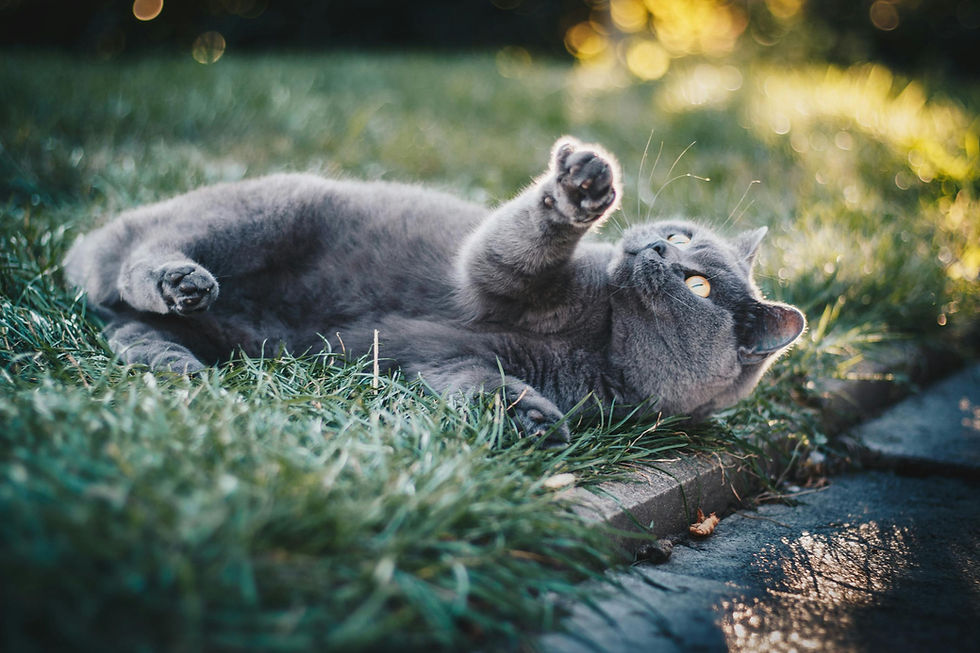Why Do Cats Meow?
- Snappy Tom Pet Supply
- Aug 11, 2022
- 3 min read

Have you ever found yourself wondering why your cat meows? You may be surprised to learn that meowing is a communication technique that cats have developed to interact with humans! They use different methods to communicate with other cats.
Every cat has their own unique communication style. Some are very vocal, while others will rarely make a peep. Whether you’re still getting to know your cat’s cues or simply curious about the motivation behind their chatter, here are a few common reasons why cats meow.
To greet you
Have you ever noticed that your cat will chirp or meow when they walk into a room? This is their way of announcing their presence and saying hi! Some cats will even meow in response when you speak to them!
Because they want something
Cats will often use their meows to boss you around. They’ll speak up around dinner when they’re ready to have their dish filled. If you usually feed your cat at the same time each day, you’ll probably notice that they begin pestering you as dinner hour nears. They may even meow with anticipation as you fill their dish!
Your cat may also meow when they’d like you to open a door for them. Sometimes this communication technique is helpful, say when your cat is ready to come in from outside. But it can also be a nuisance, like when your cat demands to be let in or out of your bedroom in the middle of the night!
They’re demanding attention
Meowing is your cat’s best strategy for getting your attention. Whether they want to be petted or simply acknowledged, your cat may become vocal when they want to pull your focus to them. If attention is what they’re after, your cat will likely rub against your leg or crawl into your lap while meowing at you. As if they’re saying, Hey, look at me!
They feel stressed or anxious
Meowing can also indicate that your cat is feeling stressed or anxious. If this is the case, you will probably notice a difference in the tone and cadence of your cat’s meow. While social or bossy meows may be calm and soft, an anxious cat’s meow may sound strained. Sometimes, it may even be more of a yowl than a meow.
You may notice your cat yowling when they are crated during car rides or at the vet’s office. They may also meow like this when confronted with a new pet they’re unfamiliar with, such as a friend’s dog or if they spot a strange cat on their territory.
Cognitive dysfunction
It’s relatively common for cats to experience cognitive dysfunction as they age, affecting their memory and social behaviour. They may struggle to find their way around, even though they’re familiar with your home. They may also experience irregular sleep patterns, and some cats become more dependent on their human companions. Many cats who experience cognitive dysfunction become more vocal, likely due to the anxiety and confusion these changes bring. If you suspect your cat might be meowing due to cognitive decline, your veterinarian may be able to prescribe medication to ease your cat’s anxiety.
They may not speak with words, but cats are excellent communicators. They will quickly teach you precisely what each of their meows means so you can better serve them. Taking the time to understand your cat’s meows and body language will help the two of you find a happy balance living together.







hi